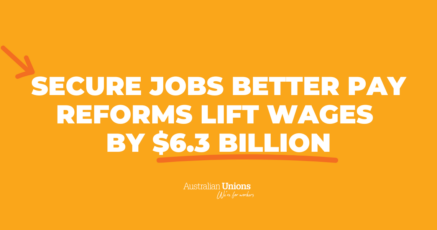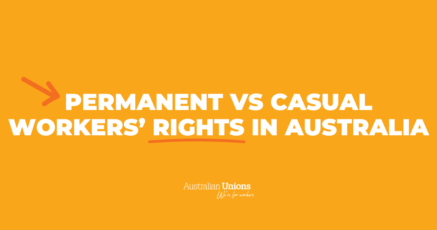Insecure work is at crisis levels in central Queensland.
- Nearly 4 in 10 workers (38.7%) are in casual work.
- 1 in 2 workers in central Queensland no longer have a permanent job.
- Mining and manufacturing companies have been deliberately replacing permanent jobs with insecure ones.
Insecure work is incredibly prevalent in central Queensland. The region is host to industries that have large groups of casual workers, such as agriculture, healthcare, and retail.
Insecure work hurts everyone. Workers in insecure work are unable to support their local communities and businesses, which is crucial due to the pandemic’s hold on Queensland’s tourism industry.
Why is job insecurity so prevalent in Central Queensland?
Agriculture, health care and retail are big employers in the region and typically engage a lot of casual workers. But it has also been employers in key areas such as mining and manufacturing – some of the biggest in the region – that have been deliberately replacing permanent jobs with insecure ones.
Insecure work has also made it harder for communities to fight the pandemic. Workers lacking job security and fair pay face greater barriers to take time off work to get tested and isolate or vaccinated if they are under serious financial stress and lack job security. Many of them are the same frontline workers keeping the country running, but at higher risk of contracting the virus. This will be an acute challenge for Central Queensland, should Covid-19, and especially the Delta variant take hold in the region.
Queensland workers deserve secure work they can count on. We all do.
That’s why Australian Unions are campaigning for the Government to restore rights and job security for all workers before it’s too late.
Join our campaign for job security.
Australian workers used to have secure jobs with secure pay. Join us and together we can restore job stability for all.







SHARE:
Spotlight on Secure jobs & Wages: Central Queensland